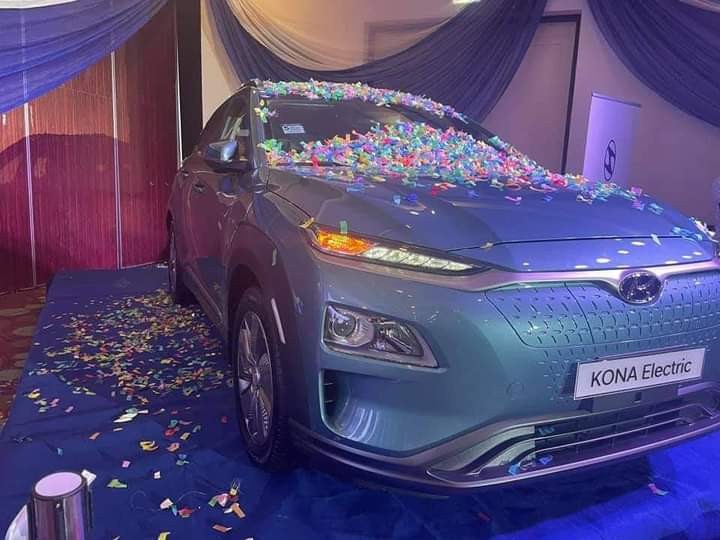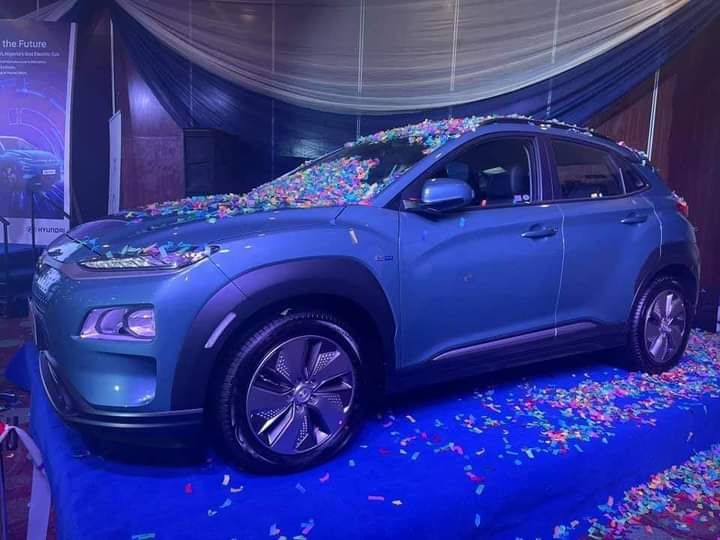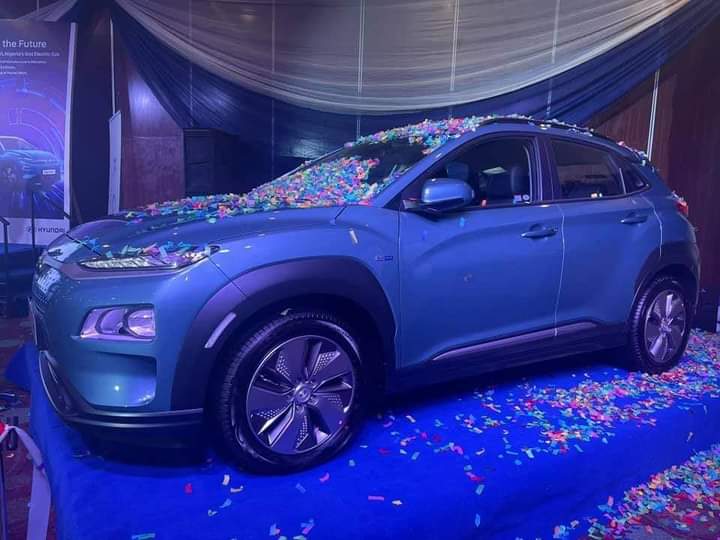Technology is doing a lot to make our world a better place! It’s changing the narrative and bringing to reality some of the things that we would have considered impossible.
Like hearing the news of an automotive tech for the first time? An electric car!
As for the year 2021, it would seem to be another year of innovative solutions and eventful happenings for Nigeria as it joined the league of electric car producers.
Indeed, the news has become the talk of the town in the capital city of Abuja, of how the first made-in-Nigeria electric car was unveiled.
The National Automotive Design and Development Council, NADDC, in collaboration with the Stallion Group, unveiled the first locally-made electric car, Hyundai Kona.
An electric car is a car that is propelled by one or more electric motors, using energy stored in rechargeable batteries.
Although Nigeria, over the years, has largely been dependent on cars that are powered by gasoline and electricity would also pose a great challenge for innovation as Nigeria currently does not have a steady power supply.
But then, Electric cars are becoming mainstream around the world, and one is likely not alone in wondering whether an electric car is right for us!
Meanwhile, this electric car could be a plus to elevating our city experience if the power generation in the country would eventually increase to meet the new tech’s demand.

As Jelani said, by 2025, at least 30 percent of Nigeria’s passenger vehicles will be electric.
Electric cars are a type of electric vehicle (EV). The term “electric vehicle” refers to any vehicle that uses electric motors for propulsion, while “electric car” generally refers to highway-capable automobiles.
The low-speed electric vehicles, classified as Neighborhood Electric Vehicles (NEVs) in the United States and as electric motorised quadricycles in Europe, are plug-in electric-powered microcars or city cars with limitations in terms of weight, power, and the maximum speed that are allowed to travel on public roads and city streets up to a certain posted speed limit, which varies by country.
Compared to internal combustion engine (ICE) vehicles, electric cars are quieter, have no exhaust emissions, and lower emissions. In the United States, as of 2020, the total cost of recent EVs is cheaper than that of equivalent ICE cars due to lower fueling and maintenance costs.
Charging an electric car can be done at various charging stations; these charging stations can be installed in both houses and public areas.
While the developers are doing Nigeria proud, they said more electric cars would be produced by 2025, when 30 percent of vehicles in Nigeria will be electric.



According to him, electric cars have come to stay, adding that Nigeria would not be left out in the transition from fuel-powered vehicles to electric cars.
Jelani said the Federal Government of Nigeria had invested about $1 billion in the auto industry in Nigeria as of 2019. While the Stallion Group, which led the innovation in electric cars in Nigeria, has invested about $300 million in Nigeria.
During the unveiling, the Minister of Industry, Trade and Investment, Adeniyi Adebayo, said electric cars would reduce fuel consumption and environmental degradation.
He said the Trade Ministry has been working with NADDC to review the automotive policy to further strengthen the automotive industry in Nigeria. He went ahead to encourage automotive plants to invest in developing electric vehicles in Nigeria.
The Chief Executive Officer of Stallion Group, Anant Badjatya, said the company, which has operated for over four decades in the country, has made significant investments in the country, adding that electric cars are the future of the automobile industry. Nigeria should not delay keying into it.
The CEO has also pointed out that the Hyundai Kona is powered 100 percent electrically and has zero-emission. The production of electric cars is an epoch-making move in the country.





